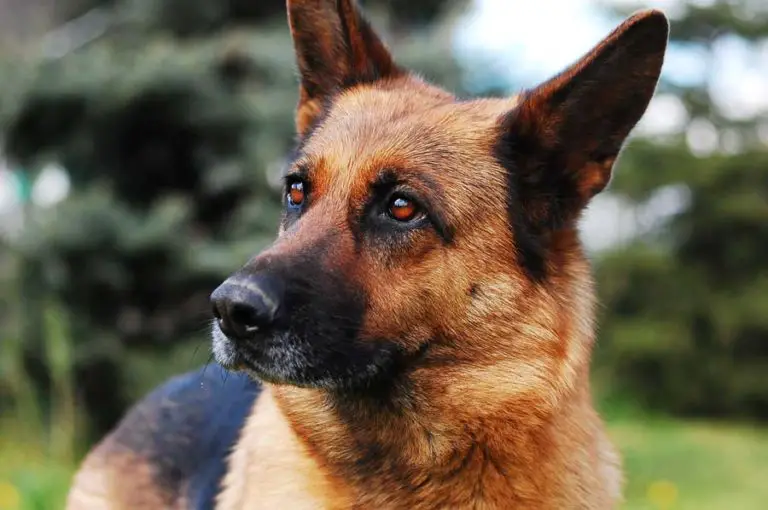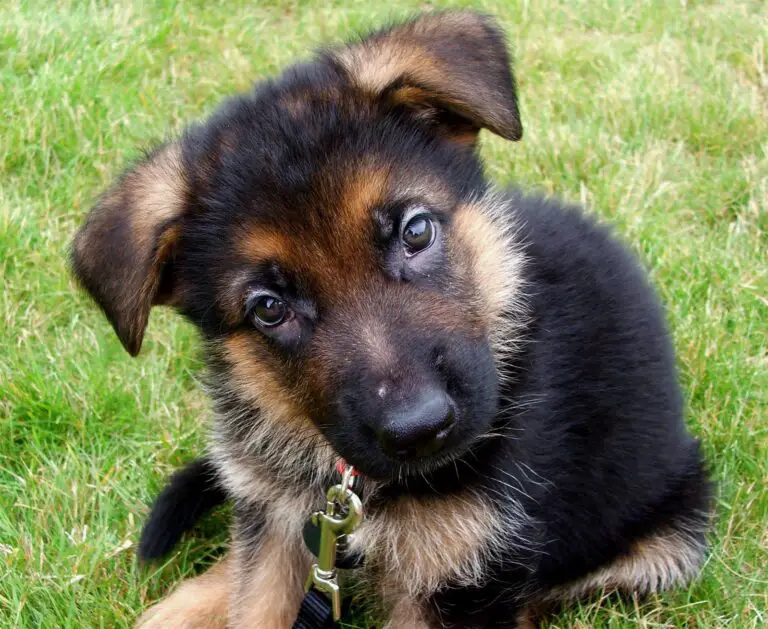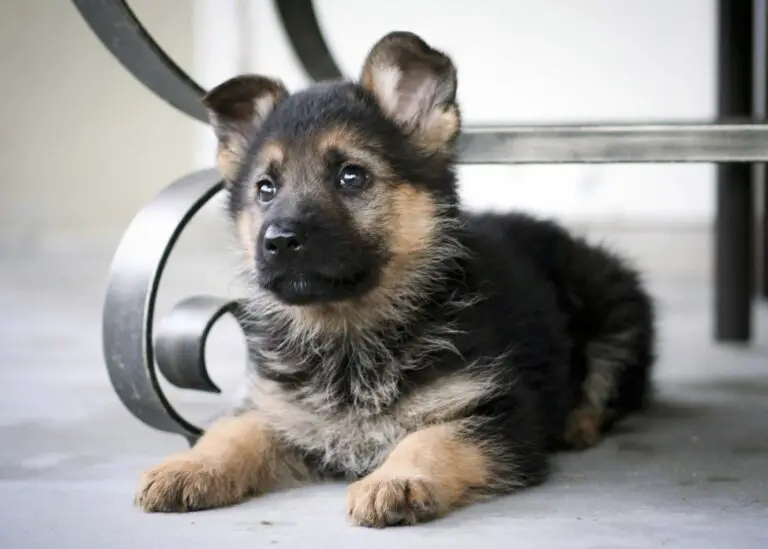Do German Shepherds And Dobermans Get Along?
When it comes to owning multiple dogs, one question that often arises is whether certain breeds can get along. In this article, we’ll explore the relationship between two popular breeds – the German Shepherd and the Doberman.
First, we’ll provide some background information about each breed, including their history and typical physical characteristics. Then, we’ll delve into the personality traits of both German Shepherds and Dobermans, discussing how they might impact their interactions with each other.
Naturally, exercise needs and energy levels are important factors to consider when introducing two dogs to one another. We’ll discuss the exercise requirements for both breeds in detail.
Next, we’ll examine the importance of socialization and training for both breeds. Are there specific techniques you need to follow when raising these dogs together? We’ll provide some general guidance.
Of course, when bringing two dogs of any breed together, there is always potential for conflict. We’ll explore some common conflicts between these breeds, and offer tips for resolving them.
Finally, we’ll wrap up with some success stories of German Shepherds and Dobermans living in harmony, and offer some key takeaways for those looking to introduce these two breeds to each other.
Dog Breed Background
When it comes to understanding whether German Shepherds and Dobermans get along, it’s important to take a look at the background of these two dog breeds. German Shepherds were originally bred to be herding dogs, while Dobermans were created to be guard dogs.
Both breeds are highly intelligent and have remarkable athletic abilities. They have been trained for a variety of tasks, such as search and rescue, military work, and police duty. Understanding the breed backgrounds can help us understand their personalities, energy levels, and potential conflicts.
A. German Shepherds
German Shepherds are a breed of large-sized working dogs that originated in Germany. They were initially developed for herding sheep, but today they are commonly used as police or military dogs, as well as service dogs for people with disabilities. German Shepherds are known for their intelligence, loyalty, courage, and high energy levels. They require plenty of physical and mental stimulation to stay healthy and happy. German Shepherds can be great companions for families who are willing to commit to their exercise and training needs.
B. Dobermans
Dobermans are sleek and muscular dogs that were originally bred in Germany to protect their owners. They are known for their loyalty, intelligence, and fearless nature. Dobermans require consistent training, socialization, and exercise to prevent destructive behavior. They are sensitive to their owners’ energy and can become aggressive if not properly trained and socialized. With the right training and socialization, Dobermans can make loyal and protective companions.
Personality Traits
When it comes to personality traits, both German Shepherds and Dobermans share common qualities such as loyalty, intelligence, and courage. German Shepherds are known for their protective nature, making them excellent guard dogs, and they are also very adaptable and easy to train. Dobermans, on the other hand, are known for their assertiveness and confidence, which can sometimes come off as intimidating. However, with proper training, Dobermans can be incredibly loving and loyal companions.
It is important to note that both breeds can be prone to certain negative traits if not socialized properly from a young age. German Shepherds can exhibit aggression towards strangers or other dogs if not trained well, while Dobermans can develop shyness or fearfulness if not properly socialized.
That being said, with the right training and socialization, German Shepherds and Dobermans can be wonderful, affectionate pets who make excellent, devoted companions.
A. German Shepherd Traits
German Shepherds are known for their loyalty and intelligence, making them an excellent breed for both working and family life. They are confident and courageous dogs that exhibit a strong protective nature towards their family and territory. They are also highly trainable and excel in various jobs, including search and rescue, police work, and military service.
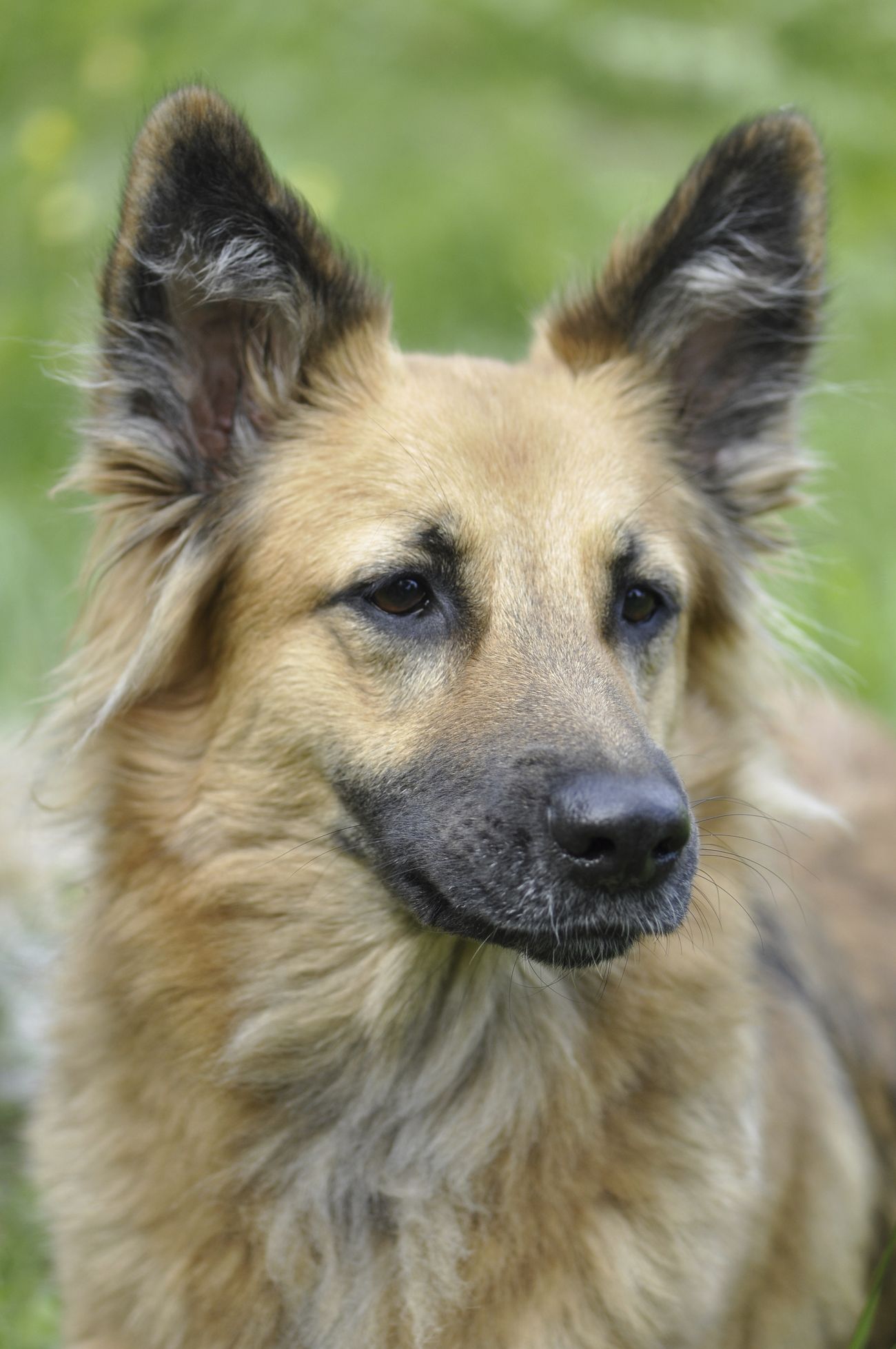
However, their strong-willed nature requires a firm and consistent handler to provide them with proper training and socialization. German Shepherds also have a high energy level and require regular exercise to prevent destructive behavior. Overall, German Shepherds make a wonderful companion for those who can provide them with adequate training, socialization, and exercise.
B. Doberman Traits
When it comes to Dobermans, there are some specific traits that are important to understand. These dogs are known for being fiercely loyal and protective of their families, making them excellent guard dogs. However, they can also be quite stubborn and willful, which can make training a bit of a challenge.
Dobermans are also known for their high energy levels and need for plenty of exercise. They thrive on activity and require both physical and mental stimulation to stay happy and healthy. Additionally, these dogs are incredibly intelligent and eager to please their owners, which can make them great candidates for obedience training and agility competitions.
Finally, Dobermans have a reputation for being a bit reserved or standoffish with strangers. While they are not necessarily aggressive, they can be wary of new people and situations. This is why socialization is so important for this breed, as it helps them feel more comfortable and confident in a variety of different settings. Overall, Dobermans are loving, loyal, and energetic dogs that make great companions for the right family.
Energy Levels and Exercise Needs
Both German Shepherds and Dobermans are high-energy dogs that require a lot of exercise every day to stay healthy and happy. German Shepherds are known for their stamina and are ideal for running and hiking, while Dobermans are better at sprinting and agility work.
If you are considering getting either of these breeds, keep in mind that they will need a serious commitment to exercise. A daily walk or run is not enough, as these dogs need to burn off a lot of energy to avoid boredom and destructive behaviors.
In addition to physical exercise, mental exercise is also crucial for these breeds. Games, puzzles, and obedience training are great ways to challenge their minds and keep them engaged.
Overall, both German Shepherds and Dobermans require owners who are willing to put in the time and effort to provide them with adequate exercise and mental stimulation. But if you can meet these needs, you will have a loyal and active companion for life.
A. Exercise Requirements for German Shepherds
German Shepherds are known for their boundless energy and need for exercise. These dogs were originally bred for herding and as working dogs, which means they require an active lifestyle to stay physically and mentally fit.
To ensure that your German Shepherd stays healthy and happy, it’s important to provide them with regular exercise that is both challenging and stimulating. As a general rule, German Shepherds require at least 30-60 minutes of exercise daily, such as a brisk walk or jog, playing fetch or participating in dog sports like agility training.
In addition to physical exercise, mental stimulation is also important for German Shepherds. They love learning and solving problems, so training sessions that incorporate obedience exercises, tricks, and games can be a great way to provide mental stimulation.
However, it’s essential to start slow and build up gradually. Over-exercising a German Shepherd, particularly a young puppy, can lead to injury and even lifelong health problems, such as hip dysplasia.
Overall, regular exercise and mental stimulation are crucial for a German Shepherd’s health and wellbeing. By providing them with the right amount and type of exercise, you can ensure that your furry companion will be healthy, happy, and a joy to be around.
B. Exercise Requirements for Dobermans
Dobermans are an active and athletic breed that require regular exercise to maintain their physical and mental well-being. As a pet owner, it’s essential to provide them with sufficient exercise opportunities to prevent boredom and destructive behavior.
Daily exercise routines for adult Dobermans should consist of a minimum of 60 minutes of moderate to high-intensity activity, including brisk walks or jogs, playing fetch, and vigorous playtime with toys. Since they have a high prey drive, it’s essential to ensure that they are always on a leash or in a secured area to prevent them from chasing after animals and getting lost.
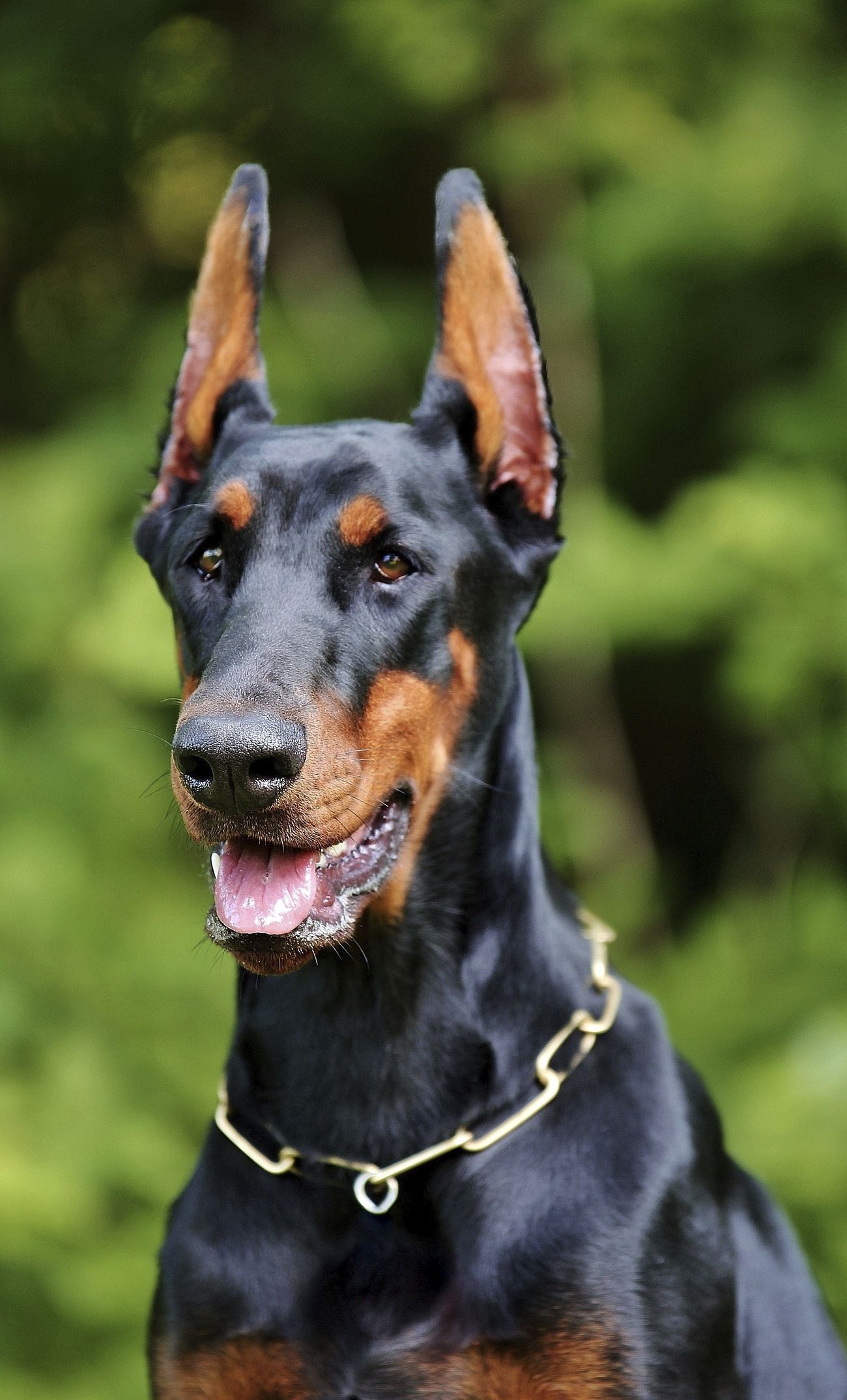
Dobermans also enjoy participating in activities such as agility training, obedience competitions, and dog sports like dock diving and flyball. Engaging them in different activities not only keeps them healthy but also works their mind and strengthens their bond with their owners.
Inadequate exercise can lead to obesity and other health problems in Dobermans, including hip dysplasia and heart issues. If you are always busy or unable to provide enough exercise, hiring a dog sitter or enrolling your Doberman in a dog daycare that offers activities can be beneficial.
Overall, the key to keeping your Doberman healthy and happy is by providing them with plenty of exercises that enrich their mental and physical health.
Socialization and Training
Socialization and training are crucial for German Shepherds and Dobermans to help them become well-behaved and social dogs. Socialization involves exposing the dogs to different people, environments, and animals from an early age to help them develop good behavior and social skills. Proper training techniques, such as positive reinforcement and consistency, will help them learn obedience and commands effectively. A lack of socialization and training can lead to potential conflicts, such as dominance issues and territorial behavior. Therefore, it’s important to prioritize socialization and training to set your German Shepherd or Doberman up for success in their interactions with other dogs and people.
A. Importance of Socialization
Socialization is crucial for all dogs, including German Shepherds and Dobermans. It refers to the process of introducing your dog to different people, dogs, experiences, and environments to help them develop good behavior and social skills.
If your dog is not properly socialized as a puppy, they may grow up to be fearful, aggressive, or develop separation anxiety. This can be dangerous not only for the dog but for others around them as well.
Socialization allows your dog to experience different situations in a safe and controlled manner, which boosts their confidence and strengthens their bonds with humans and other dogs. It also helps them to learn how to communicate effectively with other dogs and people.
It’s essential to start socializing your German Shepherd or Doberman as early as possible, ideally before they reach 16 weeks of age. This is the prime developmental period when puppies are most receptive to socializing and experiencing new things.
Overall, socialization is a critical aspect of dog ownership, and it’s an ongoing process that lasts throughout your dog’s life. By providing your German Shepherd or Doberman with positive socialization experiences, you can ensure that they grow into well-adjusted, happy, and confident dogs who get along with others.
B. Training Techniques for Both Breeds
When it comes to training both German Shepherds and Dobermans, consistency, patience, and positive reinforcement are key. Both breeds are intelligent, eager to please, and respond well to training. However, they also require firm yet gentle guidance to ensure their obedience and loyalty.
One effective technique for training both breeds is using positive reinforcement. This involves rewarding desired behaviors with treats, praise, and affection. It is important to avoid punishment-based training methods, as this can lead to fear or aggression towards the owner.
Consistency is also crucial in training both breeds. Establish clear rules and boundaries early on, and consistently enforce them. Both German Shepherds and Dobermans thrive on routine and structure, so providing them with clear expectations and consequences will help them understand what is expected of them.
Lastly, socialization is a key training technique for both breeds. Early socialization with other dogs and people can help prevent aggression and fear-based behaviors. It is important to expose them to a variety of different environments and situations to help build their confidence and reduce anxiety.
Overall, with positive reinforcement, consistency, and proper socialization, German Shepherds and Dobermans can make excellent companions and obedient pets.
Potential Conflicts
When it comes to introducing German Shepherds and Dobermans, potential conflicts can arise due to their dominant and territorial characteristics. If not trained and socialized properly, these breeds may exhibit aggressive behavior towards each other, leading to fights and injuries. It’s essential to monitor their interactions closely and establish clear boundaries to ensure a peaceful coexistence. With proper training and care, however, German Shepherds and Dobermans can form strong and harmonious relationships.
A. Dominance Issues
Both German Shepherds and Dobermans have strong personalities and a natural tendency to be dominant. As such, both breeds could face dominance issues if they are not properly trained and socialized.
If a German Shepherd and a Doberman have not been taught to respect each other’s boundaries, the more dominant of the two may try to assert their authority and become aggressive or territorial. This could result in tense situations or even physical conflicts.
To avoid dominance issues, it’s essential that owners establish their own dominance over their dogs, consistently reinforcing rules and boundaries. It’s equally important to socialize the dogs, so they can learn how to get along with other dogs, including each other.
Training sessions and exercises that emphasize coexistence and positive reinforcement can help to prevent dominance issues from cropping up. Additionally, owners should always closely supervise interactions between their dogs to ensure that they remain safe and peaceful.
It’s important to remember that dominance issues can arise with any breed combination, so owners should always be vigilant and proactive in promoting a harmonious coexistence between their pets.
B. Territorial Behavior
Both German Shepherds and Dobermans are known for exhibiting territorial behavior. This is due to their natural instinct to protect their home and family. If not trained and socialized properly, this can lead to aggressive behavior towards other dogs and strangers.
It’s important to establish boundaries for your dog early on and ensure they understand that you are the pack leader. This will help prevent any territorial issues from arising. Regular socialization and training can also help reduce aggressive behavior and increase their willingness to accept other dogs and people into their space.
As with any breed, it’s crucial to understand the individual dog’s personality and tendencies. If your German Shepherd or Doberman displays excessive territorial behavior, it’s best to seek the help of a professional trainer or behaviorist to address the issue before it becomes a problem.
Success Stories
Success stories are proof that German Shepherds and Dobermans can get along harmoniously. Many dog owners have reported successful and peaceful coexistence between these two breeds in their homes. German Shepherds and Dobermans can become best friends when they are trained and socialized properly.
These dogs are intelligent and affectionate, and they love to please their owners. They are also very protective of their families, which means they will not tolerate any threats from outsiders. When a German Shepherd and Doberman are trained to respect each other’s personal space, they can coexist peacefully and even create a strong bond.
There are several examples of German Shepherds and Dobermans living happily together. One such example is of a family who trained their German Shepherd and Doberman to play together since they were puppies. They soon became best friends, and their owners were happy to see them playing and cuddling together.
Another success story is of a couple who adopted a German Shepherd and Doberman mix. The couple was nervous about how the two breeds would interact, but with some training and care, the dogs quickly became inseparable friends.
Overall, German Shepherds and Dobermans can get along as long as they are trained and socialized properly. Success stories are proof that with patience, love, and care, these breeds can create a strong bond and coexist harmoniously.
A. Examples of Harmonious German Shepherd and Doberman Pairings
When it comes to harmonious pairings, German Shepherds and Dobermans can certainly make great companions. If you are considering adopting both breeds, it’s essential to choose dogs with compatible personalities and correct introduction techniques.
One great example of harmonious pairings is when the German Shepherd and Doberman are raised together from a young age. As long as you provide the proper socialization and training, these two breeds can grow up to be great friends and protectors, loyal to each other and their humans.
Another example of a successful pairing is when both dogs have known each other for an extended period. The key here is to introduce them slowly and carefully, giving each dog a chance to become accustomed to the other’s presence without feeling threatened.
Finally, it’s worth noting that successful pairings can occur with dogs of any age, as long as introductions and training are done correctly. With patience and care, you can help your German Shepherd and Doberman build a strong and lasting bond.
B. Tips for a Peaceful Coexistence
When it comes to introducing a German Shepherd and a Doberman, it’s essential to follow some tips to ensure a peaceful coexistence between the two breeds. Here are some tips to help you with it:
- Start Early – If you plan to raise both breeds together, it’s best to introduce them to each other as early as possible. This will help them to establish a bond and be more comfortable around each other.
- Encourage Positive Interactions – Encourage positive interactions between the two breeds by rewarding them for being calm and friendly towards each other. This will help them to associate each other’s presence with positivity.
- Supervise Playtime – Supervise playtime between the two breeds, especially during the initial stages of introduction. This will help you to intervene if things get too rough and prevent any aggressive behavior.
- Provide Separate Spaces – It’s essential to provide separate spaces for your German Shepherd and Doberman, such as separate beds and feeding areas. This will help to reduce any territorial behavior and prevent conflicts.
- Training – Both breeds require proper training to teach them basic obedience and socialization skills. It’s essential to use positive reinforcement techniques to encourage good behavior and discourage negative behavior.
By following these tips, you can ensure a peaceful coexistence between your German Shepherd and Doberman, and help them to develop a strong bond with each other.
Conclusion
In summary, German Shepherds and Dobermans have different breed backgrounds and personality traits, but they can get along if properly socialized, trained, and exercised. German Shepherds are confident and protective, while Dobermans are loyal and assertive. Both breeds require plenty of physical activity and mental stimulation to prevent destructive behavior. Early socialization is crucial to prevent dominance issues and territorial behavior. However, many success stories exist, where German Shepherds and Dobermans live in harmony. Tips for a peaceful coexistence include gradual introductions, setting clear boundaries, and providing each dog with their own space. With patience and commitment from their owners, German Shepherds and Dobermans can be great companions for each other.

